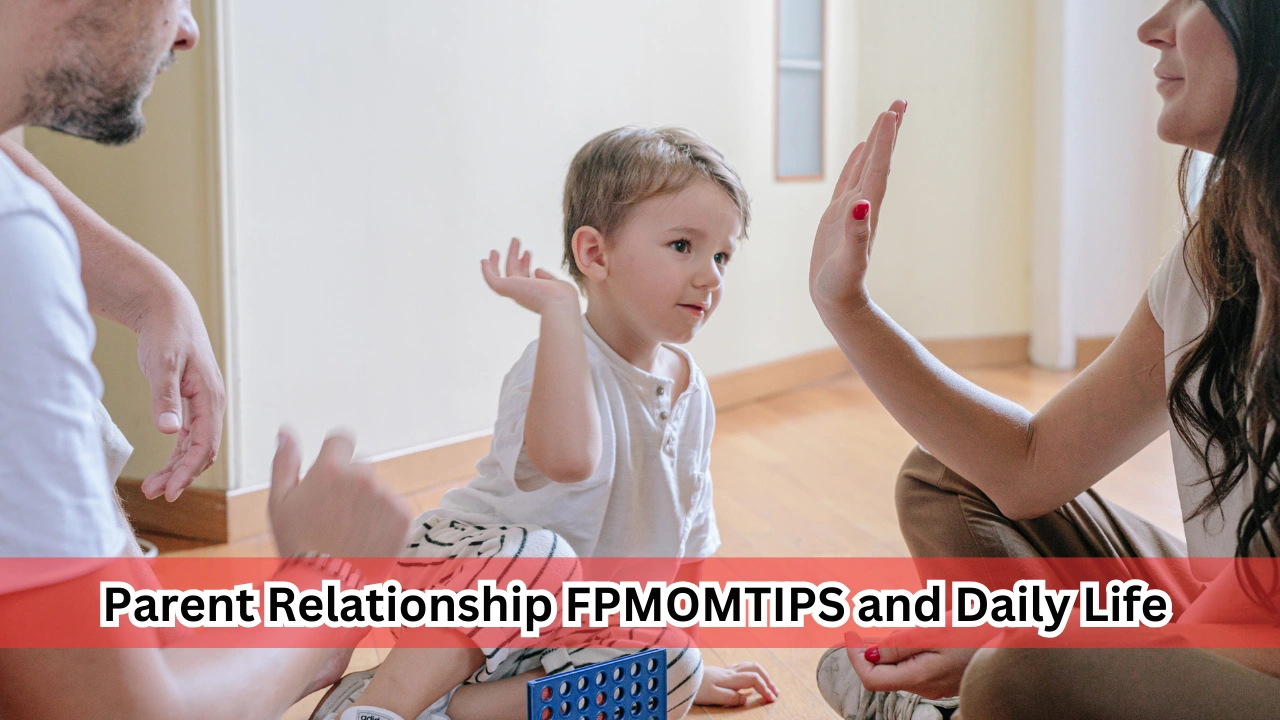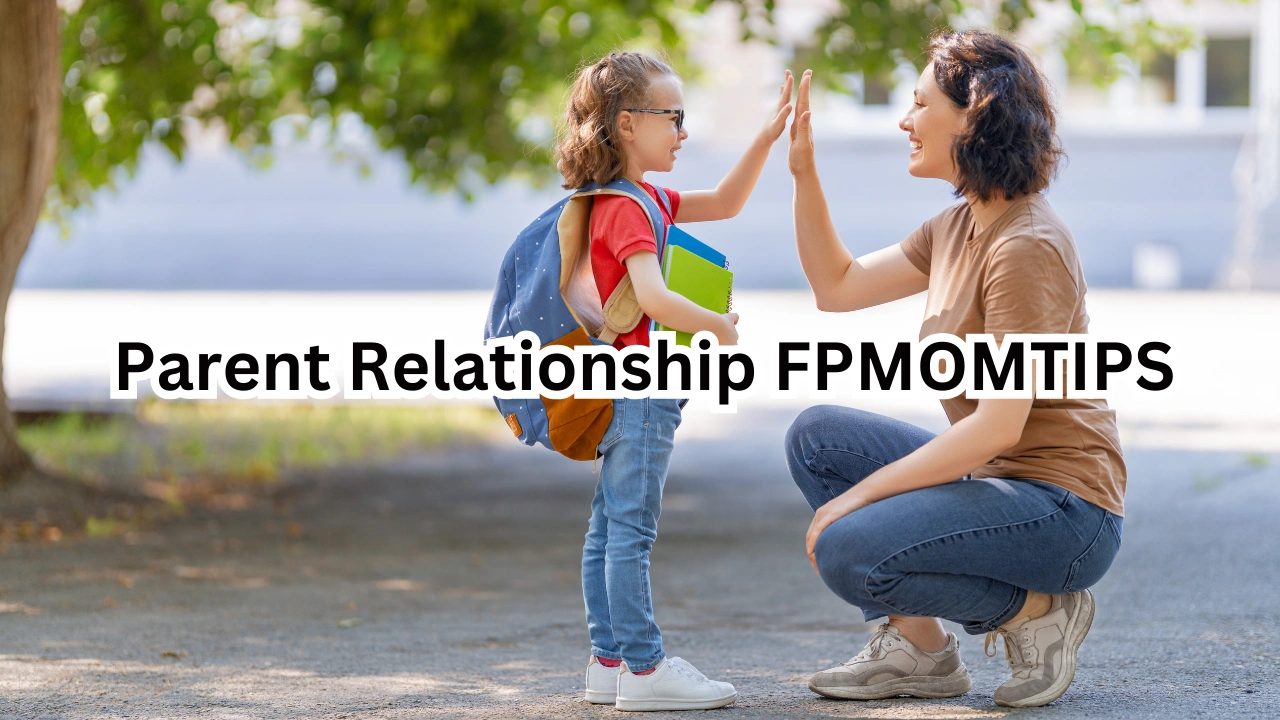Parenting is a journey filled with love, challenges, and constant learning. Families today face pressures from busy lifestyles and digital distractions. The parent relationship fpmomtips framework offers a structured way to strengthen bonds and guide children with care.
This model is built on values like forgiveness, presence, and mutual respect that nurture healthier connections at home. Just as updates bring improvements like the error susbluezilla new version, this framework focuses on communication and emotional growth, not just discipline or control. By following parent relationship fpmomtips, parents create a foundation for trust and lifelong harmony.
What is Parent Relationship FPMOMTIPS?
The phrase parent relationship fpmomtips is not a random combination of words but rather a philosophy for meaningful parenting. It is rooted in the idea that good parenting requires a balance of emotional intelligence, organization, and compassion. Parents who apply these tips in their daily life often find it easier to build trust and cooperation within their families.
The model blends timeless values with modern strategies. It recognizes that parenting is about raising not only disciplined children but also future adults who understand respect, love, and responsibility. Families that apply FPMOMTIPS see improvements in communication, reduced conflict, and stronger bonds that last for generations.
Core Elements of Parent Relationship FPMOMTIPS
The FPMOMTIPS framework is built on five simple but powerful qualities: Forgiveness, Presence, Mindful Listening, Open Communication, and Mutual Respect. These elements provide a foundation that every parent can adapt to their own family.
| Element | Description |
|---|---|
| Forgiveness | Parents release old mistakes and create space for trust and emotional safety. |
| Presence | Parents stay fully engaged, giving children undivided attention in moments. |
| Mindful Listening | Listening to understand instead of waiting to reply. |
| Open Communication | Honest dialogue without blame or unnecessary judgment. |
| Mutual Respect | Recognizing the child’s perspective and valuing their individuality. |
This table shows how each quality directly addresses a common parenting gap. When parents focus on these values, their daily interactions transform into stronger connections.
Forgiveness Clears the Path to Connection
Children make mistakes every day, and so do parents. Holding grudges or repeating past issues can damage the bond between them. Forgiveness is the first step in parent relationship fpmomtips, and it helps clear the air. Parents who forgive openly teach their children resilience and trust.
Forgiveness does not mean ignoring bad behavior. It means addressing mistakes in a calm way, ensuring lessons are learned, and then moving forward. Children who experience forgiveness develop empathy and learn to handle conflict without fear.
Presence Brings Lasting Memories
In today’s fast world, presence is often the hardest quality to maintain. Parents are busy with work, household chores, and digital devices. Yet children value moments when they feel seen and heard more than any material gift.
Applying presence in parent relationship fpmomtips means giving undivided attention. It could be as simple as listening without phones during dinner, or spending ten minutes daily in focused conversation. These small practices build emotional security and leave children with lifelong memories of love and support.
Mindful Listening Creates Trust
Listening is more than just hearing words. Mindful listening, a key element of parent relationship fpmomtips, requires patience and empathy. Parents who listen mindfully allow their children to express feelings without interruption.
This practice reduces misunderstandings and builds trust. For example, instead of rushing to correct or dismiss a child’s fear, a mindful parent acknowledges the feeling first. This validation makes children more likely to share openly in the future. Over time, this quality becomes a cornerstone of family trust.
Open Communication Strengthens Understanding
Communication between parents and children often turns into commands, corrections, or lectures. The parent relationship fpmomtips approach encourages open communication that is honest, balanced, and judgment-free. Parents explain both positive and negative sides of situations, allowing children to think critically.
Instead of blaming, parents guide. Instead of avoiding difficult topics, they create a safe space for discussion. This style of communication prepares children for real-world challenges where clear expression and understanding are vital skills.
Mutual Respect Builds Equality in Relationships
Respect is not just about children listening to parents; it is also about parents respecting their children’s individuality. The parent relationship fpmomtips philosophy highlights mutual respect as a way of ensuring both sides feel valued.
When parents respect a child’s perspective, even if they disagree, they model tolerance and empathy. Children raised in such an environment grow into adults who treat others with dignity. Respect, when mutual, becomes the glue that holds the family together during conflicts or stressful times.
Parent Relationship FPMOMTIPS in Daily Life
It is important to see how these values work in real family settings. Many parents struggle with balancing discipline and love, but this framework provides direction.

For example, a family may decide to have weekly check-ins, where each member shares thoughts and feelings without interruption. Another practice is creating a family vision board with shared values like honesty and kindness. These actions turn the philosophy of parent relationship fpmomtips into daily habits that are both practical and meaningful.
Organization as a Hidden Strength
Parenting is not only emotional but also organizational. Busy schedules can lead to stress and distance. The FPMOMTIPS model encourages parents to create routines that reduce chaos.
Simple systems like visual charts for children’s routines or shared calendars for family events create harmony. By removing clutter and reducing overscheduling, parents make room for genuine presence. Organization in parent relationship fpmomtips is not about perfection; it is about making life easier for connection to thrive.
The Digital Balance Challenge
Technology is part of every modern home. While it can connect families, it can also create barriers. The parent relationship fpmomtips philosophy suggests setting clear boundaries around digital use.
Families can create no-phone zones during meals or bedtime, which ensures quality conversations. Parents can also co-watch children’s shows or play games together to spark healthy discussion. These simple practices prevent screens from replacing genuine family interaction.
In this digital era, the same way we discuss topics like online game event lcfgamevent, families should also openly talk about digital habits. Communication about technology builds understanding and prevents future conflicts.
Emotional Regulation as a Parenting Tool
Children often mirror the emotional state of their parents. If a parent reacts with anger, the child learns fear. If a parent responds calmly, the child learns stability. That is why emotional regulation is essential in parent relationship fpmomtips.
Parents can practice daily pauses, reflection at bedtime, or mindful breathing before reacting. By modeling calmness, they set the emotional thermostat of the home. Over time, children learn to regulate their own emotions, leading to better problem-solving and stronger mental health.
Communication That Truly Connects
One of the most practical parts of parent relationship fpmomtips is its approach to dialogue. Parents are encouraged to acknowledge, clarify, connect, and then guide. This model ensures that children feel heard before being corrected.
A conversation might begin with acknowledgment of feelings, followed by asking questions to understand better. Then parents connect emotionally before giving guidance. This order prevents power struggles and fosters cooperation. Families that use this style report fewer conflicts and more meaningful conversations.
Impact of Parent Relationship FPMOMTIPS
The goal of parenting is not just raising obedient children but preparing future adults. The parent relationship fpmomtips philosophy focuses on building skills that last a lifetime. Forgiveness, respect, and mindful listening are qualities that children carry into their friendships, careers, and their own families.
By focusing on these values, parents are not only solving today’s issues but also shaping tomorrow’s leaders. Families that live by this framework leave a legacy of love and strength that goes beyond one generation.
Practical Examples from Families?
Different families adapt parent relationship fpmomtips in unique ways. For example, some parents use daily reflection questions like “What was your best moment today?” Others use family calendars to balance school and fun activities.
Here is a simple table showing examples:
| Practice | Effect on Family Bond |
|---|---|
| Daily 10-minute talk | Builds trust and presence |
| Family vision board | Strengthens shared values |
| No-phone dinner rule | Increases quality communication |
| Weekly check-ins | Helps in resolving conflicts before they grow |
| Bedtime reflections | Improves emotional awareness and family growth |
These examples prove that the framework is flexible and can be molded into any household’s culture.
Why Parent Relationship FPMOMTIPS Matters Today?
Modern life is fast and stressful. Families face challenges like less face-to-face time, increasing screen use, and rising emotional pressures. The parent relationship fpmomtips framework is more relevant than ever because it creates intentional ways for parents and children to stay connected.
It is not about being perfect. It is about presence, communication, and respect. Every small step toward these values makes the family bond stronger. In a world where relationships are easily distracted, FPMOMTIPS brings clarity and focus back to what matters most.
Conclusion
The parent relationship fpmomtips model proves that strong families are built on daily habits of love, respect, and presence. Parents who practice forgiveness, mindful listening, and open communication create bonds that last for a lifetime. These small but consistent steps transform ordinary routines into meaningful connections.
Parenting is never about perfection, but about progress and intentional growth each day. By applying parent relationship fpmomtips, families nurture trust, reduce conflicts, and build emotional strength. This philosophy becomes a living guide that shapes children into compassionate, resilient, and responsible adults.
